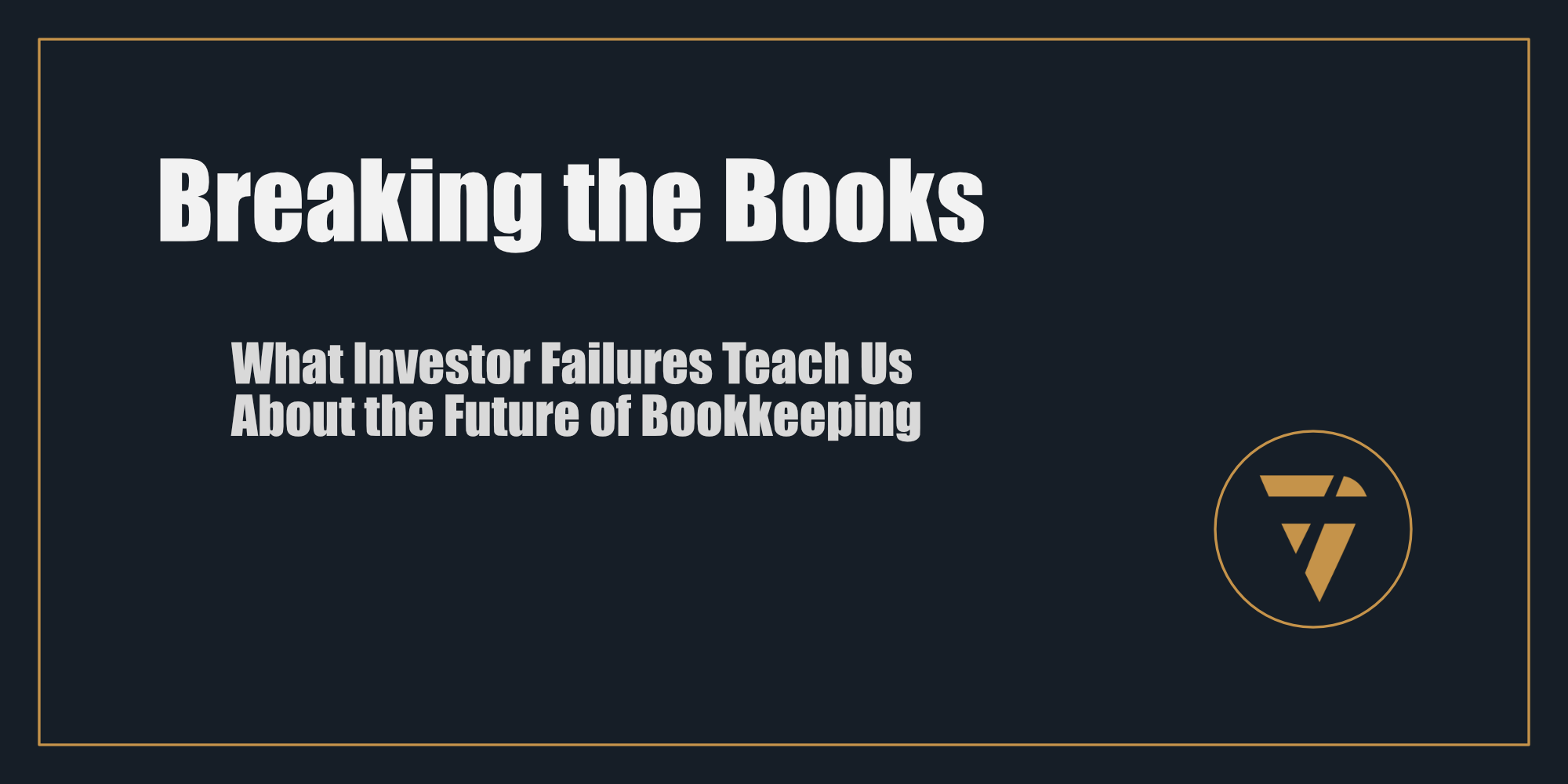Breaking the Books
What Investor Failures Teach Us About the Future of Bookkeeping

A Startup’s Collapse, an Industry’s Wake-Up Call
Bench Accounting was supposed to be the future. It promised to simplify bookkeeping for small businesses by combining automation with human expertise—a seamless blend of technology and service. For a time, it delivered. Bench attracted millions in venture capital, scaled rapidly, and captured market attention as a shining example of fintech innovation.
Then, it all fell apart.
This isn’t just a story of operational missteps or market conditions. Bench’s downfall is fueled by investor failures: poor oversight, unrealistic expectations, and a lack of industry understanding. It’s a cautionary tale about what happens when those entrusted with guiding innovation prioritize short-term gains over long-term viability.
In this piece, we’ll explore how misaligned investments contributed to Bench’s collapse, what this means for the bookkeeping industry, and what entrepreneurs and investors must learn to avoid repeating history.
1. How Investors Failed Bench
A. Chasing Growth Without Sustainability
From its inception, Bench attracted significant venture capital. Investors pushed the company to prioritize customer acquisition and market share, often at the expense of operational health. While scaling is critical for startups, rapid growth without a sustainable financial foundation is a recipe for disaster. Bench’s cost-to-revenue imbalance ballooned until it was unsustainable.
B. Misaligned Expectations and Ignorance of Market Dynamics
Bookkeeping isn’t a pure tech play; it’s a hybrid of automation and service delivery. Investors treated Bench like a software startup, expecting the kind of margins typical of SaaS businesses. They overlooked the reality that human-intensive services require a different financial model and operational approach.
C. Lack of Strategic Intervention
When warning signs emerged—rising churn rates, spiraling costs—investors failed to provide meaningful guidance. Instead of addressing structural issues, they doubled down on existing strategies. By the time intervention was necessary, it was too late.
2. Lessons for the Bookkeeping Industry
The collapse of Bench isn’t just a failure of one company; it exposes deeper flaws in how the bookkeeping sector is approached and funded.
A. Small Businesses Need More Than Automation
The core promise of bookkeeping remains unchanged: clarity, compliance, and financial empowerment. While automation can enhance efficiency, small businesses still need personalized advice and tailored insights to navigate Canada’s complex regulatory landscape.
B. Bridging the Trust Gap
Bench’s failure has shaken confidence in tech-enabled bookkeeping solutions. To rebuild trust, future startups must emphasize transparency, robust support systems, and ethical business practices.
C. Redefining Success Metrics
For investors and entrepreneurs, success in bookkeeping shouldn’t be measured solely by customer acquisition. Retention, client satisfaction, and operational sustainability must take precedence.
3. The Future of Bookkeeping: Opportunities Amidst Disruption
A. The Rise of Hybrid Models
The future of bookkeeping lies in integrating technology with human expertise. Companies that successfully combine AI-driven automation with accessible, personalized service will lead the way.
B. Industry-Specific Solutions
Generalized platforms struggle to meet the unique needs of different industries. Future players should focus on niche solutions tailored to sectors like retail, real estate, or hospitality.
C. Investor Responsibility
Bench’s collapse should serve as a wake-up call for investors. They must approach the bookkeeping sector with humility, understanding its unique challenges, and providing guidance rooted in expertise rather than pure financial expectation.
Redefining Partnership for the Future
Bench Accounting’s story is a lesson for entrepreneurs, investors, and the entire bookkeeping industry. For startups, it’s a reminder that scaling too fast can be as dangerous as failing to grow. For investors, it underscores the importance of understanding the sectors they fund and aligning their expectations with reality.
The future of bookkeeping in Canada is wide open. Entrepreneurs who prioritize operational sustainability and personalized service, and investors who commit to building rather than extracting value, have the opportunity to redefine the industry.
What opportunities do you see in the bookkeeping market today? Share your thoughts or connect with us to discuss the path forward.
Subscribe for more insights on startup strategies, investor dynamics, and industry innovation.
This Substack is reader-supported. To receive new posts and support my work, consider becoming a free or paid subscriber.
This is what I’m working on. Tell me what you think, I enjoy the conversation! Subscribe and follow the work in real time.
Thanks!
B
PS -





